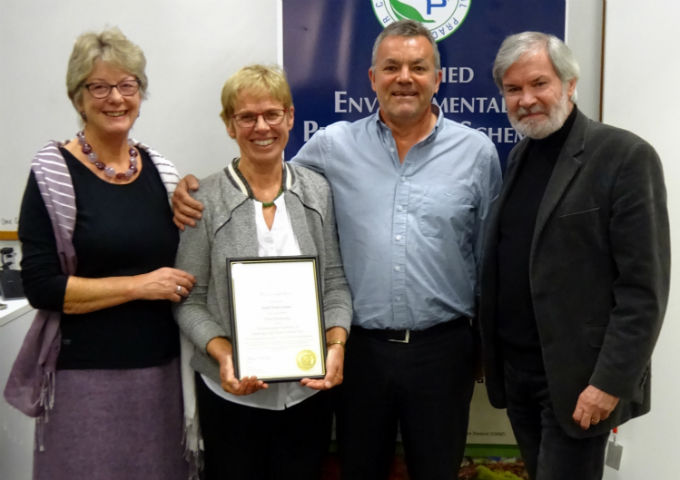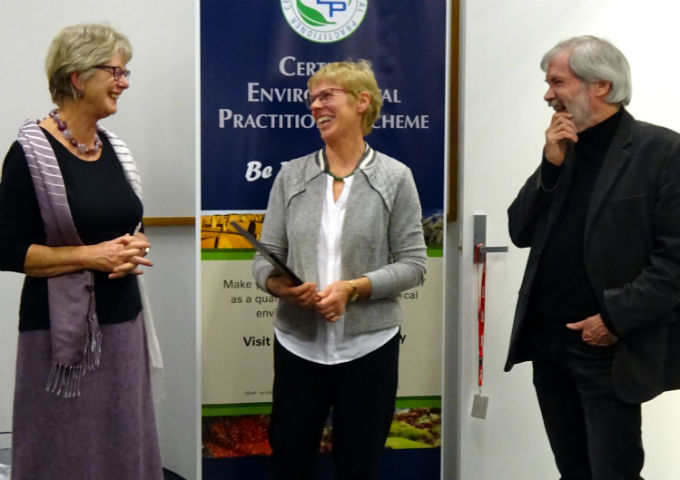-
Member Login
- Home
- About
- Institute Groups
- Membership
- Events
- News & Publications
- Institute Programs
- Resources
- Jobs Board
- Contact Us
- Site Info
A new EIANZ Fellow for New Zealand - Dr Judith Roper-Lindsay

Judith Roper-Lindsay with Di Buchan, Ian Boothroyd and Bryan Jenkins
Our congratulations to Dr Judith Roper-Lindsay who has recently been awarded Fellow status by the EIANZ Board. She joins our other two NZ Fellows - Professor Bryan Jenkins from Canterbury and Di Buchan from Wellington – both now members of the EIANZ Board. We also have three Honorary Fellows – Emeritus Professor Ian Spellerberg, Hon Professor Peter Skelton and Dr Morgan Williams.
Judith is a Founder Member of EIANZ (having joined the Environment Institute of Australia in 1988), and was the second President of the New Zealand Chapter. In 2010 she was the recipient of the Simon Molesworth Award which is awarded to members who have made a substantial contribution to the Institute.
Judith has spent more than 30 years working in ecological planning and management providing ecological assessments of significant development projects throughout the country. She is the principal author of the Ecological Impact Assessment Guidelines which were published by EIANZ last year and which received the RMLA’s Documentation Award, at the RMLA 2015 conference.
She has a long-standing interest in the development of biodiversity policy. Judith was a member of the Ministerial Advisory Group examining opportunities for protection of biodiversity on private land and was a contributor to the Group’s interim report “Bio-What?” in 2000. Together with David Norton in 2004, she published a landmark work on the identification of significant sites under the RMA.
In addition to her term as President of the New Zealand Chapter, Judith has served as President of the New Zealand Ecological Society, has served on the Executive of the Royal Forest and Bird Protection Society and has been a member NZ Conservation Authority.
After such a productive career Judith more than qualifies for the right to put her feet up but instead she remains a part-time ecological consultant which gives her time to continue contributing to her community and the Institute. She is currently a member of the Waimakariri Zone Water Management Committee (implementing the Canterbury Water Management Strategy) as well as continuing to be an active member of the Christchurch Branch of EIANZ and working on an update to the EcIA Guidelines.

We acknowledge and value the rights and interests of Indigenous Peoples in the protection and management of environmental values through their involvement in decisions and processes, and the application of traditional Indigenous knowledge.

